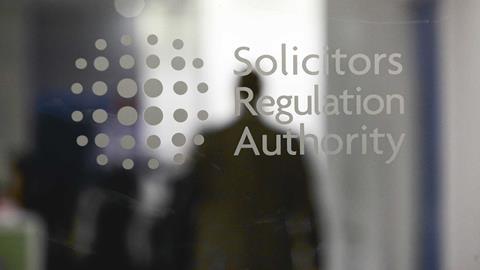It is difficult to think of a time when trust in the Solicitors Regulation Authority among the profession has been so low.
Two cases in quick succession have highlighted alleged shortcomings in the regulator’s disciplinary process and unfairness built in to the system.
In Ellen, a solicitor was found to have done nothing to breach SRA rules and yet was forced to shoulder her own costs (albeit she hadinsurance). In Ahmud, the cleared defendant at least managed to secure payment from the regulator, but not before a costly argument over what should be paid following a prosecution riddled with mistakes.
Meanwhile a lack of transparency remains at the heart of the organisation (board meetings remain closed to the public and media) and little information is available about how costs are incurred. The SRA’s website states that the organisation’s aim is to give the public full confidence in the solicitors’ profession: presently there appears to be little confidence from the solicitors’ profession in the SRA.
And yet, the regulator is asking for permission to increase its fining powers from £2,000 to £25,000 as part of a consultation which ends in February.
The principle is sound: too many cases go unecessarily through the Solicitors Disciplinary Tribunal. These are costly for all parties and increase the time that solicitor respondents have to wait to move on with their careers. The SDT, would benefit from having more time to deal properly with the rising number of complex cases, without being bogged down by fairly standard work.
But the costs issues in Ellen and Ahmud cast a shadow over what the SRA is trying to achieve. The principle of ‘loser pays’ doesn’t usually apply in these cases because the regulator is acting in the public interest, yet the solicitors’ profession is in an invidious position because no legal help is automatically available to those being prosecuted (as there is, for example, in the medical profession). Effectively there is a massive inequality of arms, and the only way to level the playing field is to take the kind of risk that Ellen did.
If the SRA has the power to fine solicitors up to £25,000, it holds all the cards. Respondents can either accept that they committed serious misconduct and pay the fine, or defend themselves and rack up more in costs than the sanction would have been. The SRA can basically toss a coin, offering ‘tails we win, heads you lose’. You can fight the case, but the regulator has access to expensive lawyers and expert advisers, while you can either defend yourself, pay a massive insurance premium or bankrupt yourself fighting the case.
Again, the issue is not necessarily with the increase in fining powers. Any other time, this would appear to be a sensible and proportionate change – and arguably long overdue.
The problem is we’re handing the power over to a body which – on recent evidence – is not best equipped to wield it.
































24 Readers' comments